Georgetown Law Welcomes Record-Breaking Number of Military Students in Fall 2025 1L Class
November 10, 2025
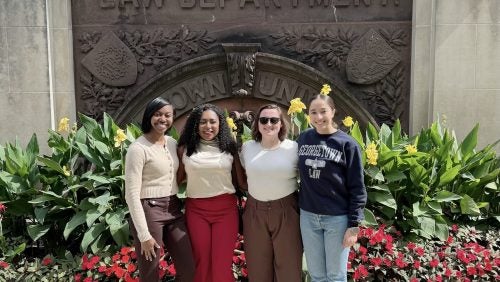
This year’s entering class includes four West Point women graduates. L-R: Belle Minter Noralez, L’28, Niara O’Connor, L’28, Grace Brooks, L’28, and Monica Burciaga, L’28.
For Belle Minter Noralez, L’28, military service and legal advocacy share a common aim: serving others.
“It’s not like your service stops, it just changes,” says Noralez of the transition to a legal career from the U.S. Army, where she served as a Signal Corps platoon leader and later oversaw state recruitment and retention efforts as a company commander. “It fills me up that I can still serve people in a different profession.”
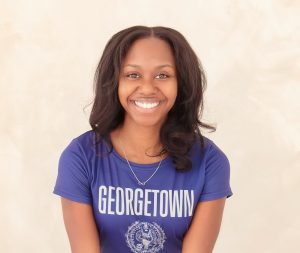
Belle Minter Noralez, L’28
Noralez is one of 39 military service members and veterans in Georgetown Law’s Fall 2025 entering class — nearly double last year’s total and the largest cohort since at least 2018. A 2019 graduate of the U.S. Military Academy at West Point, Noralez is also one of 18 military academy graduates in this year’s entering J.D. class, an increase from 10 graduates last year.
“As we approach Veterans Day, we are so proud to have these students in our community,” says Georgetown Law Dean of Admissions Andy Cornblatt. “They have served our country in ways that many of us can’t possibly imagine. Their dedication, discipline, leadership, collaboration and teamwork are all things that law firms — and law schools — are looking for.”
Among the service members and veterans in this year’s entering class are full-time and evening program students whose service in the U.S. Army, Navy, Coast Guard and Air Force spans a range of ranks and roles, from intelligence analysts and senior officers to physicians and submariners.
“We hope that people will come to see Georgetown Law as a place that will welcome you if you served in the military,” Cornblatt says, noting that his office will continue in-person and virtual outreach to U.S. service academies in the year ahead and underscoring how student ambassadors and alumni help strengthen ties to the next generation of military-connected law students.
Building community in the nation’s capital
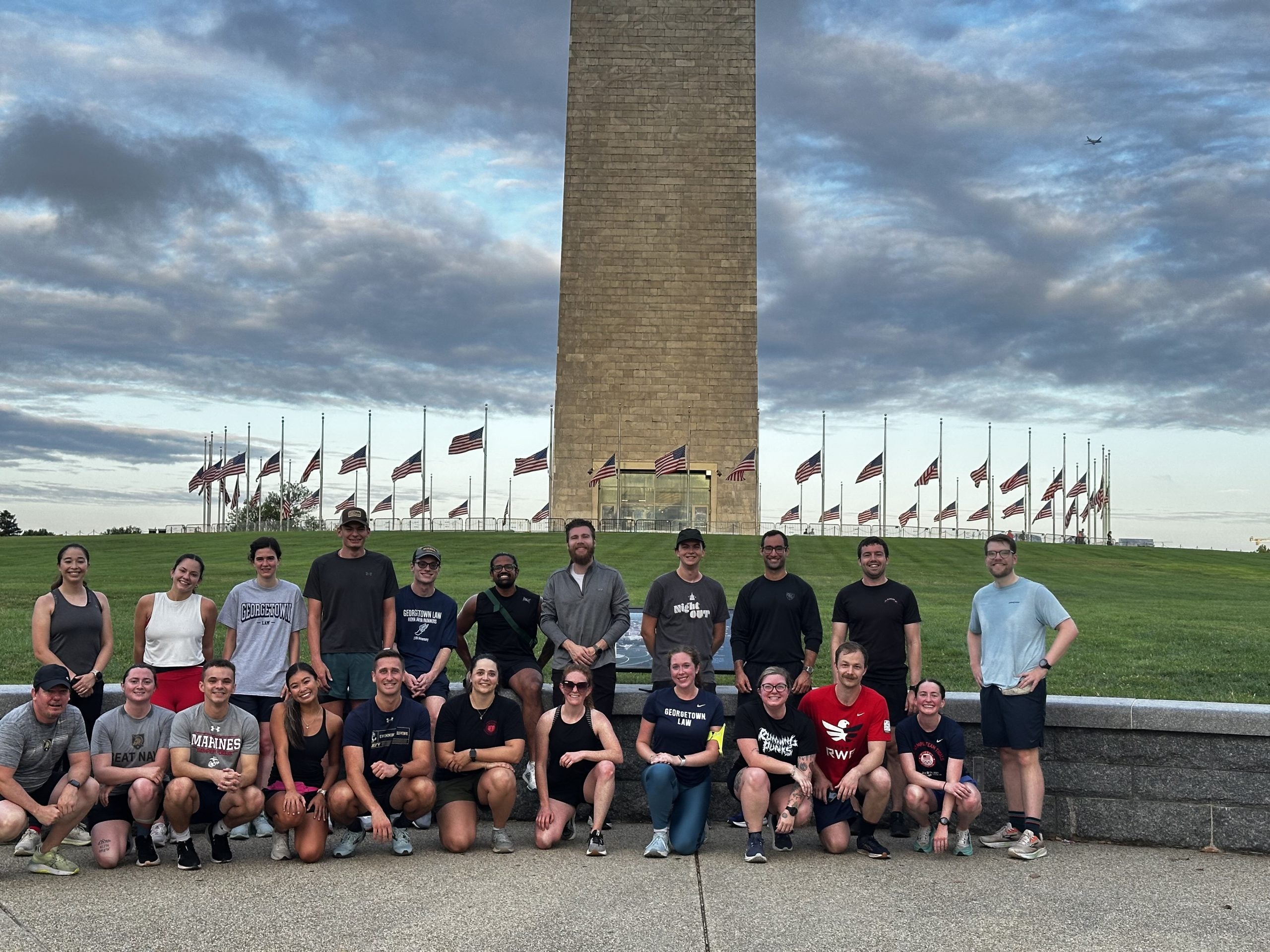
This fall, members of the Military Law Society took part in a 9/11 Memorial Run on the National Mall.
On campus, organizations such as the student-run Military Law Society and the Center on National Security provide academic and career support and programs of interest for students — and help foster a tight-knit military community.

Simon Hernandez, L’28
“The Military Law Society has been so crucial to introducing us to the law school and getting us set up with connections and resources,” says Simon Hernandez, L’28, who served in the National Guard as a combat engineer and volunteer wildland firefighter before applying to law school. One of two 2025 Tillman Scholars (a prestigious fellowship for armed forces members, veterans and military spouses) in this year’s entering class, Hernandez hopes to build a legal career focused on expanding access to affordable housing.
“I have so much liberty to study what I’ve always wanted to study in an environment where the the professors are so encouraging [and] the students are really cooperative,” he says, also crediting the Office of Public Interest and Community Service (OPICS) for helping connect him with clinic and internship opportunities as well as alumni working in his chosen field.
Other university-wide resources for service members and veterans include the Military and Veterans’ Resource Center and the Georgetown University Student Veterans Association. Georgetown Law also participates in the Yellow Ribbon Program to cover all or part of tuition and fees not covered by the Post-9/11 G.I. Bill for qualifying students.
Taking ‘the leap’ to law school
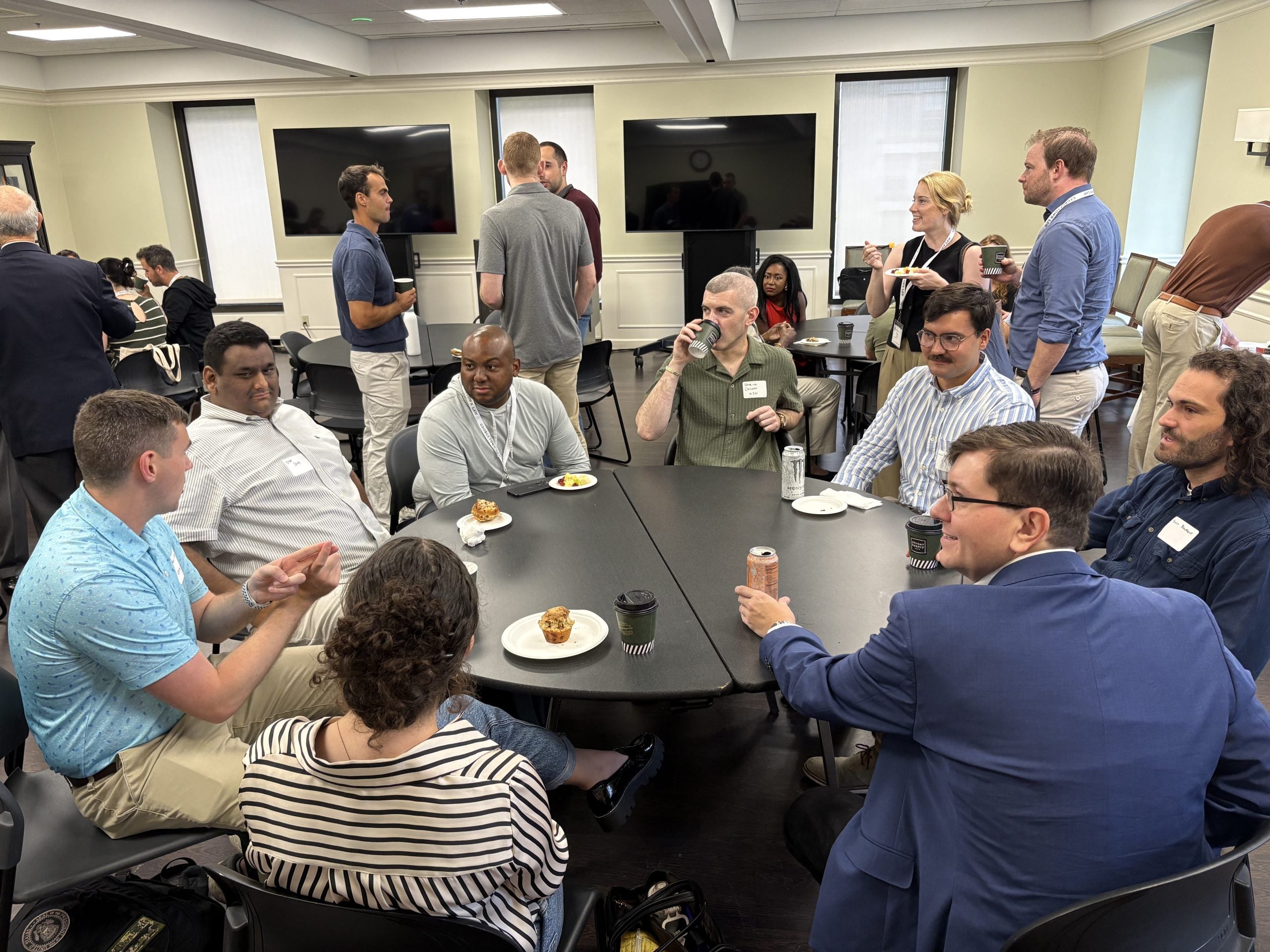
Students and faculty gathered for a military-connected breakfast during J.D. orientation in August.
Beyond campus resources, Georgetown Law students have unparalleled access to military institutions and a robust network of service members and veterans in the nation’s capital. “D.C. is a military-heavy area,” Noralez says. “Not only is it where laws are made, interpreted and challenged, but it’s home to so many veterans.”
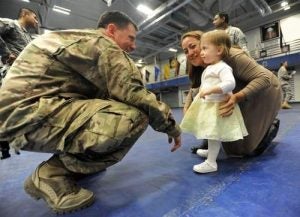
Casey Doss (left), L’28
Casey Doss, L’28, agrees. “Being here in D.C. gives a relevancy to a lot of what Georgetown does,” says the two-time Bronze Star Medal recipient, who most recently worked as a projects specialist on behalf of military veterans for Senator Cory Booker (D-N.J.). Prior to retiring in 2020, Doss’s 21-year military career included multiple post-9/11 deployments, overseeing 46 Army museums as deputy director of the Army Museum Enterprise and serving as an assistant professor of history at West Point.
Doss notes that his experience differs in some ways from the 1L norm: He is older than many of his classmates (some of whom — including Noralez — were West Point cadets while he was an instructor) and commutes to campus each week from New Jersey, where his wife and 12-year-old twin daughters live.
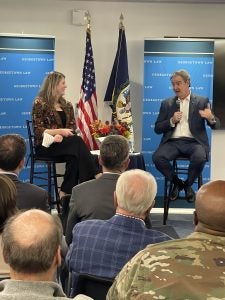
On Nov. 6, the Honorable John P. “Sean” Coffey (right), L’87, former general counsel of the Navy, joined members of the Georgetown Law community for a Veterans Day reception hosted by the Office of Alumni Affairs and the Military Law Society.
But his prior career experience and graduate studies in history have only enriched his appreciation of his first-year classes. “It was a no-brainer,” Doss says of the choice to take part in Georgetown Law’s alternative 1L “Curriculum B” (Section 3), noting that he has appreciated the section’s “Foundations of American Legal Thought” course in particular for the historical and philosophical framework it provides.
“Having studied a lot of the same history from different perspectives, it has been really interesting for me to now examine it from a legal perspective,” he says.
Noralez similarly emphasizes that the discipline and time management skills she developed during her military career prepared her for the rigors of law school, including balancing her studies with caring for her 2-year-old daughter.
Her advice for other members of the military considering the transition to law school? “Take the leap,” she says. “The military will always be there. Your friends, they’re not going anywhere. But if you have something that you’re really passionate about, you should go after it.”